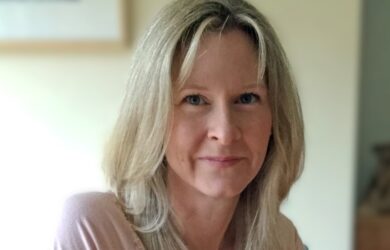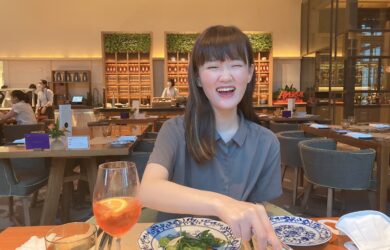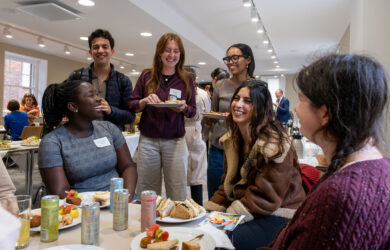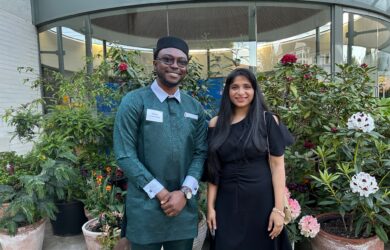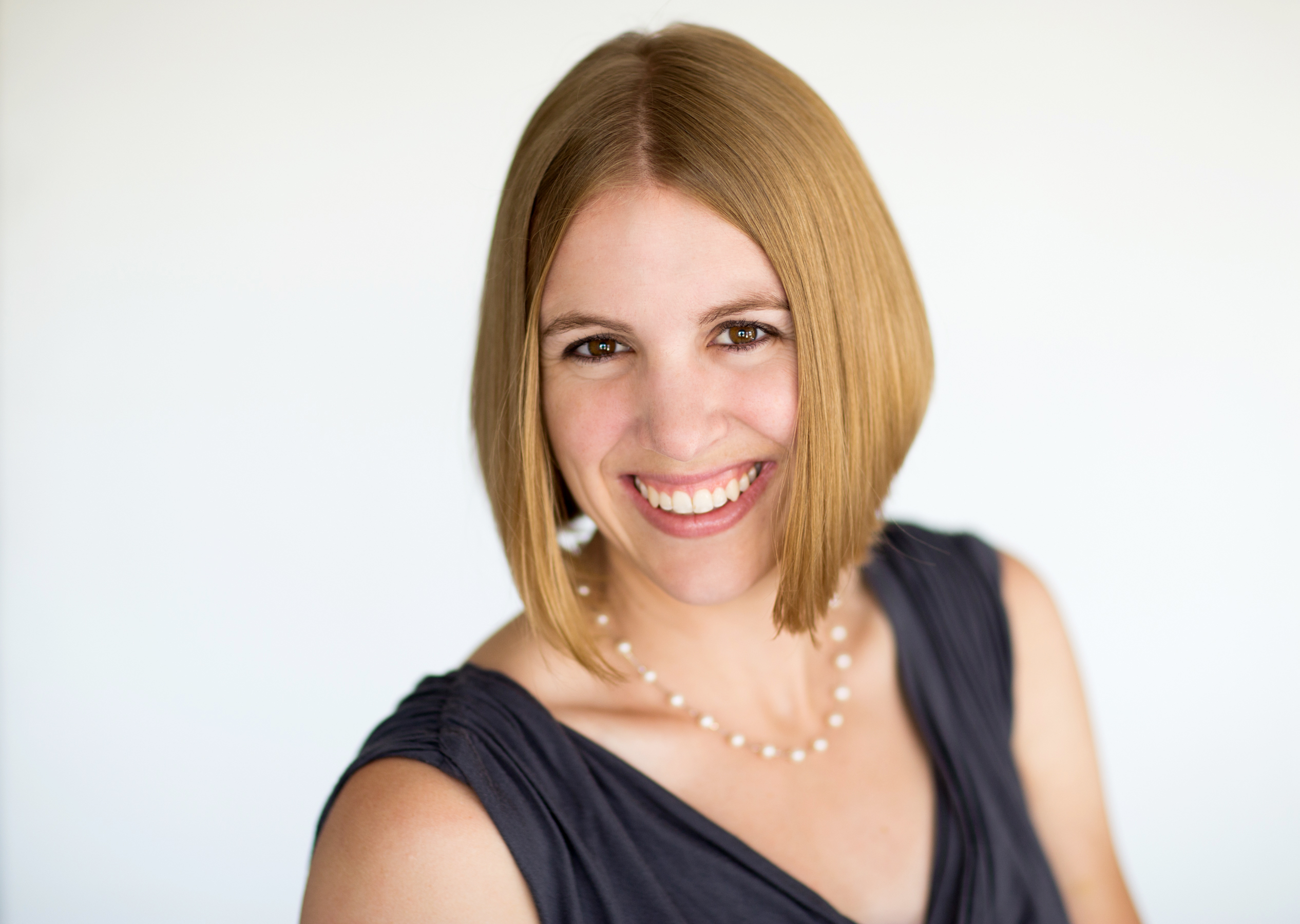
Alexandra Mannerings talks to Gates Cambridge about her research, her career and her aim to make data work for SMEs and non-profits.
What attracted me to what I am doing now is the desire to address a big challenge for smaller organisations, to help them to ask the right questions and the chance to have a big impact.
Alexandra Mannerings
Alexandra Mannerings set up her data analytics business Merakinos in February, but her ambition is much bigger than simply running a consultancy. She wants to help small businesses and non profit organisations increase their impact by helping them harness the power of data, something many often can’t afford to do.
Her aim is to set up a fractional analytics support service for smaller organisations so they can get access to data science in an affordable way, for instance, by sharing an analyst and data infrastructure with other businesses.
In launching her business this year, Alexandra [2009] drew on the analytical skills she honed at Cambridge and on Gates Cambridge’s emphasis on making an impact. “What attracted me to what I am doing now is the desire to address a big challenge for smaller organisations, to help them to ask the right questions and the chance to have a big impact,” she says.
Alexandra was inspired to set up her own business by her mother, who runs a food microbiology business that she began when Alexandra was young. Alexandra witnessed her mother’s pioneering work in the field of probiotics as well as how she collaborated with colleagues around the world and used scientific evidence to back up everything she did.
That helped nurture both a love of science in Alexandra as well as an interest in running her own business. “My mum found a way to carve out her own business and still always be there for me and my brother and she involved us in her work too,” she says. Often the family would travel together to the international meetings her mother attended. That’s a model Alexandra has herself adopted after having her own children, now aged two and four.
Alexandra’s husband is a first responder and can’t choose his hours, so her business gives her the flexibility she needs for her children. Before Covid she was Director of Data at the Colorado Hospital Association, but her role didn’t allow for much flexibility and it was very stressful. “I remember pumping breast milk in my car,” she says. “I felt constantly torn. Family life sometimes just doesn’t work with the way the corporate world is set up,” she says. It was only when she had already come up with her own solution to the problem that she was offered the possibility of going part time. “It was too little too late,” she states.
Childhood
Alexandra was born in Indiana and grew up in Denver, Colorado. Her father’s work also influenced her later career. He is a retired psychologist who worked in a behavioural health company.
When it came to school, Alexandra had a difficult time in her early years until her mother found a state middle school for her outside the district called the Challenge School. It had a special charter and deviated from the normal middle school curriculum. Children were tested and placed in classes according to their aptitude, regardless of their age. “For the first time I was with children who challenged me,” says Alexandra. “I got to learn everything I wanted to learn. It was an extraordinary school and fostered my love for integrating different subjects.” Topics were taught across different subjects. “It’s the foundation of so much of what I do. There were no silos,” she states.
When she moved to high school she was one to two years ahead of her peers and was able to take college-level classes. That meant she built up college credits and could focus on ‘fun’ classes when she started at Emory University, including Roman mythology, Shakespeare and ethics, even though she was majoring in Biology. “It’s one of my fundamental strengths that I can boundary hop,” she says, adding that to build an effective health data programme you need to understand human beings.
Undergraduate years
Alexandra loved Emory, in part because it was next to the Centers for Disease Control where she hoped to work given her interest in global health. Emory started a new programme in her first year called Inspire which exposed students to laboratory work. Alexandra worked on mutations in bacteria to understand the genetics of bacteria. During her time at Emory, Alexandra also got to spend time in Namibia, Botswana and Kenya. It made her realise how privileged the West is health-wise, particularly when it comes to infectious disease.
She says the West has forgotten how dangerous infectious disease can be, but Covid has been a terrible reminder. “We keep talking about Covid as if it is unprecedented. In fact it is the norm for humans to be at risk of dying from infectious disease,” she says, warning that we do ourselves a disservice if we see Covid as a blip and talk about getting back to normal. “Normal is living with infectious disease as a permanent threat,” she says.
For her honours thesis at Emory, Alexandra studied the relationship between ladybirds and aphids. Aphids have to partner with bacteria in their gut to survive and she was interested in studying whether the bacteria transferred to another species, ie the ladybird. Alexandra has long been interested in the One Health concept and the interdependence between animals and humans when it comes to health and how animal health affects human health.
Cambridge
She applied to study veterinary science at Cambridge because vets were the only ones paying attention to the One Health agenda at the time. She originally wanted to do a master’s with a Churchill scholarship, but ended up being advised to do a PhD and being considered for a Gates Cambridge scholarship, which she describes as ‘serendipitous’. Her supervisor was Dr Olivier Restif who was researching whether a pathogen present in East Asia was spilling over into sub-Saharan Africa, whether the pathogen was infecting bats and whether it could pass over into humans.
Alexandra started her PhD in 2009 and conducted five trips to Ghana to assess the possible risk factors and how they could be mitigated. Due to her interest in sociology, she conducted surveys in communities near where bats were living to get an idea of how humans’ relationship with bats had changed over time. She also took hundreds of samples of blood from people in areas of Ghana where bats congregated and were hunted to test for evidence of infection with bat-borne pathogens. She says it is very difficult to get people not to hunt bats when it is your only income or not to eat bat meat if it is your only source of meat.
The importance of data
Her PhD ended in 2013 and she intended to work for the CDC, but she couldn’t get the role she wanted so she did various different jobs, teaching and working for an education non-profit before getting her role as director of data at the Colorado Hospital Association which supported all the hospitals in Colorado. The role enabled her to help hospitals make the most of the data that they had access to which had often lain around on their hard drives, for instance, data from medical insurance claims. The idea was that this could be used to track what was happening in hospitals and to help them to understand what was going on in their local communities better.
The organisation also created a digital portal through which hospitals could ask questions that might interest them, such as about mental health issues. “The aim was to help hospitals to understand population health risks and to provide an integrated view across Colorado so facilities could have insight into what happened to their patients outside of their own four walls,” says Alexandra.
She stayed there until her children were born. Then she started working as Director of Data Strategy at a small start-up advising small businesses and others about their analytics to improve the running of their businesses. After a year she felt she had learned enough to be able to set up her own business.
Looking back, Alexandra says that being a Gates Cambridge Scholar has made a huge difference to how she approaches life now. “There is that obligation to contribute to the world. I heard Bill Gates Sr talking about the scholarship’s return on investment and that resonated,” she says. “I feel I need to do something that makes it worth the investment. Gates Cambridge recognises that there are many different ways to change the world and that we have to invest in all of them if we want to move the world forward. We have to have conversations across disciplines, ask questions that might be uncomfortable and act on the answers. That is the way to have the best impact. Gates Cambridge gave me the courage to ask those questions.”








